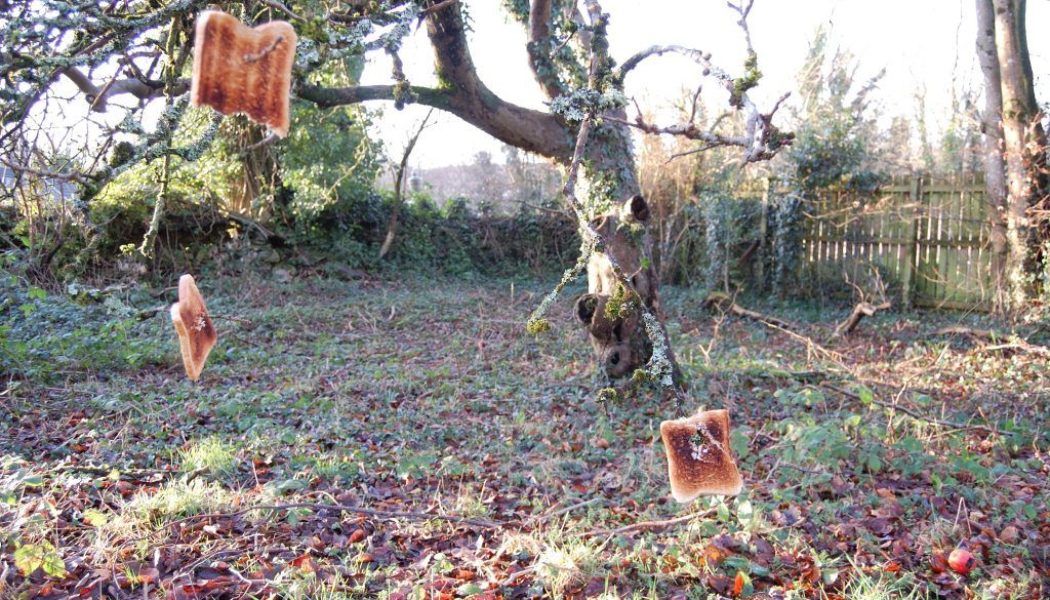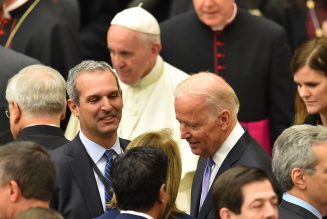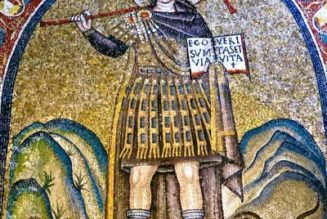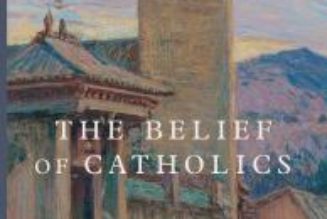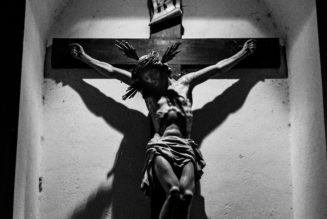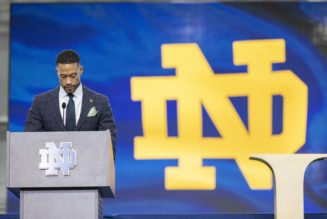Happy Friday friends,
And a very happy Epiphany to those of you who celebrate it today. I know that in many places the feast is transferred to the Sunday, but here in Rome they still keep the day on the day, so to speak.
It’s been an interesting few days for JD and me, here in Rome to cover the funeral of Pope Benedict XVI. We’ll get to all of that in a second. And hopefully we have a few more friends to see and catch up with before we head home over the weekend.
But I have to admit to a certain sadness to being away from home today. As JD has mentioned on the podcast more than once, I take the celebration of Christmas very seriously, and I make a real effort to keep making merry right through until today’s feast, when my wife and I usually host a Twelfth Night party at our house.
We had to cancel our Twelfth Night festive this year, since I was going to be on the road. While I will obviously find an Epiphany Mass to attend, I would like to do something festive for the evening, too, though I am not sure how the Romans would take to an evening’s wassailing.
For those of you unfamiliar with the Twelfth Night tradition, it started in Cornwall and in its earliest form involved consuming a considerable amount of cider (the hard stuff, not the funky apple juice you find at American county fairs) and then proceeding through the orchards singing and hanging pieces of toast from the boughs of the oldest or tallest tree — I forget which.

The purpose is, I think, to ward off pagan spirits and ensure a good harvest the following year. What this has to do with Christmas, or Epiphany, is anyone’s guess. But I am fairly certain that, like most English country customs, the toast-and-cider party has its origins in a bunch of lads drinking too much in a garden shed, proceeding into bizarre shenanigans, and then inventing an explanation when discovered in media res by their wives.
The word wassail is a Norse greeting meaning “good health”, which you’re supposed to offer (at volume) along with a stiff drink (at volume) to the people you meet as you go around.
Since Shakespeare’s time at least, the term has come to mean seasonal reveling in general, and in many places “wassailing” has mutated into the practice of men drinking, and then going door-to-door singing and collecting money, either for a good cause or to spend in the pub later that night, assuming you think there’s a difference.
The Romans, especially around the Vatican, have a high tolerance for foreigners indulging their home customs — I saw more than a few Germans in traditional Alpine gear toasting Pope Benedict with schnapps in the streets around the Vatican this week. But I am not sure how they would feel about me dragging JD around the neighborhood for some door-to-door caroling to fund a night at the pub.
So it’s probably going to be a quiet evening for me.
Anyway, here’s the news:
The funeral of Pope Benedict XVI gathered about 50,000 people in St. Peter’s Square on Thursday morning.
It was, by papal standards, an intimate affair. While there were a few heads of state present, it was a long way from the fanfare of the funeral of Pope St. John Paul II. But it was no less emotional for the mourners who gathered.
You can read our coverage here of the funeral Mass itself.
—
In the days leading up to the funeral itself, there was a lot of discussion about what, exactly, is the proper way to honor a “pope emeritus.” Quite a few people noticed and asked about the form of the liturgy used.
So what does this all mean, and how big a deal is it?
Dating back to at least the 7th century, the Roman Canon was the sole Eucharistic Prayer used by Latin Rite clergy up to the late 20th century. Following the reforms of the Second Vatican Council, it became “Eucharistic Prayer I” in the revised Roman Missal, which has a total of four options meant for different occasions.
Eucharistic Prayer III is meant to be used on Sundays and feast days, and is an option for Masses for the Dead, as it has a special formula commemorating the deceased.
The use of Eucharistic Prayer III for Benedict’s funeral stirred up a lot of discussion, not least because of his deep attachment to the liturgy, which was central to much of his theological thought.
Some Catholics on social media have called the decision to use the more modern Eucharistic Prayer III “sad,” “shameful,” and “a disgrace.” Some speculated that it was meant as a pointed snub to the pope who did so much to broaden access to the older forms of the Mass.
But just because some people found the choice awkward or questionable doesn’t mean there is actually something sinister or problematic about it.
Benedict himself often celebrated Mass using Eucharistic Prayer III, and it has a special prayer which can be added to its celebration during a funeral, as it was in the pope emeritus’ case.
You can read all about the different Eucharistic prayers, and the debate over them, here.
—
The form of the liturgy used for Thursday’s Mass was only one detail up for debate in the days leading up to Benedict’s funeral, as his supporters and critics clashed over how much pomp and circumstance should be accorded to the event, given that he was a pope but did not die in office.
It’s my conclusion that this debate was actually inevitable, as was the sense I got from the funeral itself — that it was not really fish or fowl.
Benedict was a pope. For several years he was the pope. But he died as the ‘pope emeritus’, a peculiar title and status he more or less invented for himself. When a reigning pope dies, it leaves a visible hole at the top of the Church’s hierarchy and we mourn not just the death of the individual but the vacancy of the office. At Benedict’s funeral, he was not the pope, the pope was sitting there presiding over the liturgy.
Because he did not die as a head of state and the head of the Church on earth, Benedict’s funeral lacked not just some of the liturgical trappings of the office he once held, but also the depersonalizing nature of that office.
The result of this is that Benedict’s funeral was really about him, the man, and so it’s not especially strange that people reacted to the funeral and preparations for it based on their own opinions about him personally, and freighted with a good dose of their own ecclesiastical politics.
I can’t say I find it especially edifying, but I’m not sure it was ever going to be any other way.
You can read my whole analysis here.
Goodbye to ‘Fr. Benedict’
Away from the polemics and personality politics of commentary writers, however, normal Catholics also felt the personal, rather than institutional, nature of his death and funeral.
What I found interesting were the very personal reasons some gave for being there, speaking about how Benedict had, as a writer, a thinker, and a leader, left a deep mark on their own lives.
“He’s a saint for me,” one religious sister from Nigeria told us, as she spoke about Benedict’s great ability to communicate his love for God and, more importantly, God’s love for us.
A student from South Korea told us she had been traveling when she heard the news of Benedict’s death: “I saw that he died, and I wanted right away to see him. In the Church I prayed: ‘Goodbye, Father. Goodbye.’”
It strikes me that the man who reportedly wanted to be called “Fr. Benedict” in retirement has, after his death, finally gotten his wish.
Hear the voices, and stories, of Catholics from around the world, right here.
‘Santo subito!’
They didn’t talk about Church politics, or liturgical disputes, or any of the other issues focused on by the professional commentariat class. They talked about a man whose writings and example had changed their own lives.
“He was a rock. Something solid, and something true. He was someone we could trust. He was a rock for me,” one French Catholic said.
Benedict will be remembered, of course, for his time as pope and for his towering theological legacy. But by those who gathered in St. Peter’s this week, he was mourned as a pastor, someone who left a deep and deeply personal impression on many people’s lives.
I’m not sure anyone could ask for a better legacy.
While much of our coverage this week has focused on the mourning of Benedict XVI, we’ve published other stories, too, which you shouldn’t miss.
Lai has been in prison for more than two years now, and his sentences keep adding up as authorities continue to bring a litany of charges against him. His current trial sees him accused of, basically, sedition. He’s accused of encouraging foreign governments to sanction the Chinese government over its crackdown on civil liberties and human rights in Hong Kong. Last month, the trial was put into recess until September as the court awaited the outcome of a legal dispute over Lai’s choice of lawyer.
He wants to be represented by Luke Owen, a top UK lawyer — something not uncommon in Hong Kong trials because of the historical ties between the legal systems of Britain and its former colony. But Hong Kong’s chief executive objected, saying foreign lawyers should be barred from taking part in national security cases.
And here’s an interesting detail: the recently “elected” chief executive, John Lee Ka-chiu is also a Catholic. In fact, during his campaign for office he made much of his Jesuit education, which he said gave him his drive to “help society as a whole.” He has also promised to crack down harder on journalists critical of the government, and called for even more draconian “national security” legislation.
Lee’s bid to stop Lai from freely picking his own legal representation was rejected twice by Hong Kong’s courts, which gives you a sense of why this matters — there is, or at least has been, still some sense of rights and due process in the judicial system in Hong Kong.
After losing in court Lee appealed to the Beijing government’s standing committee, asking them to overrule the judges, leading to the case’s adjournment. This week, we learned their decision:
Beijing said that, because of the “one country, two systems” principle meant to be governing Hong Kong, it wasn’t for them to decide — but they instead handed Lee the authority to make the call. We can pretty much guess how Lee will decide his own appeal.
—
Life, people often say, is about making good choices. And good choices are usually the product of good information. So, you might think, the more we can understand and work to mitigate the risks we face in all parts of our lives the better — right?
Not necessarily.
Scherz recently published a book, “Tomorrow’s Troubles: Risk, Anxiety, and Prudence in an Age of Algorithmic Governance,” which is a reflection on risks, technology, algorithms, and the Christian call to trust.
He and Charlie spoke about everything from preventative cancer surgery to TikTok, and the ways we need to think better, and deeper, about how we process and use the information we have to make better choices — and increasingly to have them made for us.
This is a really interesting interview. Read the whole thing.
How I got here
Yesterday, JD remarked to me that I seemed a little out of sorts, even ambivalent, at the funeral of Benedict XVI.
It was a fair observation, but it would be wrong to think I’ve been indifferent to Benedict’s death. On the contrary, I found myself feeling deeply conflicted.
Like most of the people we spoke to here in Rome this week (see above), I have my own story about how the late pope changed my life, and how Benedict came to be both the remote and proximate cause for me being in Rome this week.
It dates back to 2010, when Benedict made his state visit to the UK — the first by a pope.
At the time, I was working in British politics and loving it. I had a very cool office, I had a backstage pass to Parliament, I had great friends.
My career was also, though I say it myself, looking good. These were the years of the coalition government, and all signs pointed to a political flood tide over the next few election cycles. My then-boss was an MP I had known as a candidate; he had asked me to run his office when he was elected.
My boss had a tag in his ear, as they say: He was destined for the cabinet (and he got there), and I fully expected to be along for the ride, probably for the next decade or more.
Then, one day, Pope Benedict came to work.
He gave a short address to the joint Houses of Parliament. I wanted to go to the speech, obviously. Thanks to a modest boycott by some Ulster and Scots Protestant members, I got wind there were a few tickets going spare and, after some begging around the Speaker’s office and Black Rod, my wife and I ended up sitting in the seventh row. It was great.
I was a Catholic, obviously. And having the pope show up at your office was exactly as cool as it sounds.
I loved the occasion of the thing, and reveled in the Bishop of Rome speaking to the country’s political class about the integrity of conscience in the hall where Thomas More stood trial.
He spoke about the ethical foundation of political choice, and the role of faith and the Church as a “corrective” to a merely technocratic and mechanistic view of society and government. He also spoke of the objective moral principles which underpin true freedom and human flourishing, and warned against the “distortions” which come from neglecting or excluding them.
His speech was, by papal standards, short. But it covered a lot of ground. And it stayed with me for weeks afterwards. It left me with a serious question about what I did for work.
My out-of-office life revolved around the practice of the faith. And I made my own halting efforts to bring Christ into the office, and the pub, and talk about the Gospel with the people I knew. But I also had a pragmatist’s view of British political life. All of the parties were (and are) decidedly secular — the handful of MPs who were openly opposed to abortion were (and are) universally considered cranks.
I did what I could in the rooms I was in, sure, but I didn’t think twice about my wider complicity in a government agenda that was, I knew, heading in several directions that definitely fell foul of Church teaching. Benedict’s address, delivered only a few yards from me, made me question all of that.
Those questions set me on the path to finding a new career, one in which I could root what I did in the truths Benedict had spoken about. When, 18 months later, I told my colleagues I was quitting my job to study canon law, the collective consensus was that I was having some kind of meltdown.
As I worked through my first semesters as a canon law student, I fell in love with the subject, and it was Benedict I credited with encouraging me to put my whole working life at the service of the Church, though he didn’t know it.
The day he announced his resignation, I was in class. Like all my classmates, I couldn’t believe what we were reading.
There was obviously a lot of frenzied discussion about the nature of ecclesiastical office and the canonical requirements of a valid renunciation of the Petrine ministry, which was intellectually fascinating. But I took Benedict’s decision personally. I felt, like a lot of Catholics did at the time, confused. And, on some level, it felt like a kind of betrayal.
For me, Benedict was the pope who came to my office and called me to do something better — to have faith that I could work in a different vineyard and that God would sustain what efforts I offered with sincerity for the Church. His resignation felt to me like he was walking off the job, just as I was about to come on shift.
After Pope Francis’ election, I gradually settled into my new work, first as a canonist, and in more recent years in Catholic journalism. I felt less raw about Benedict’s resignation. I still leaned often on his writings; his total confidence and innocent delight in the unshakable reality of God’s love is the basis for much of what little interior life I claim to have.
But whenever I thought about Benedict it was with an ardent kind of bittersweet affection.
As I watched his funeral yesterday, I felt it again. As the Mass carried on I found I couldn’t really focus on it.

But I came to Rome to do a journalism about the event, so after it ended I went back to my hotel and wrote an analysis of it.
Then I sat for a while. I prayed the rosary, as I reflexively do when I don’t know what else I should be doing. As I prayed, the same three words came to my mind, as they usually do: “God is love.”
If those three words prove to be the only true thing I ever speak or write with confidence, it will matter more than any degree I ever got, or any job I ever do.
Benedict taught them to me.
God is love.
And by a very long road that started in Westminster Hall 12 years ago, Benedict brought me here to Rome this week. For all of this, I am grateful. And I will miss him.
See you next week,
Ed. Condon
Editor
The Pillar

